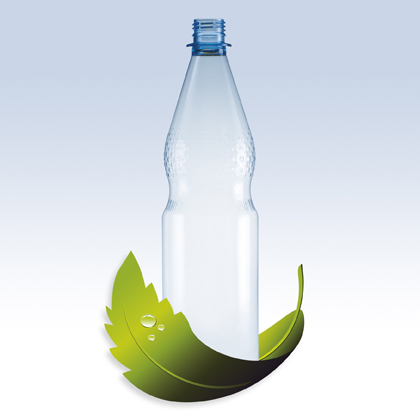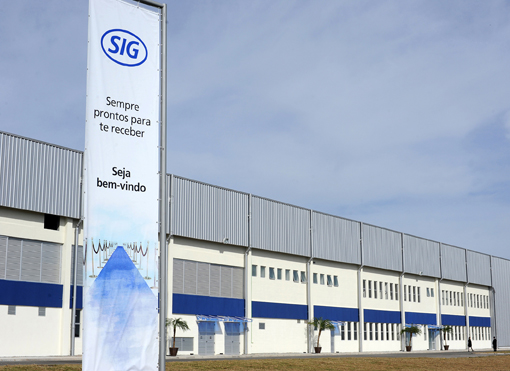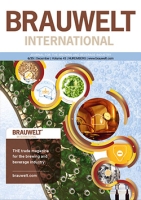Specialist plastics packaging technology business Petainer has developed its ‘greenest ever’ refillable bottle using more than 25 per cent post-consumer ‘one-way’ recycled PET (PolyEthylene Terephthalate) plastic which has the same performance characteristics as a refillable bottle made entirely from virgin material. It gives the same number of ‘round trips’, has the same top-load strength which allows it to be stacked in the same way as other refillable bottles, and provides the same level of retention of CO2 in carbonated soft drinks.
With its latest SBO Compact2, Sidel consolidated a reliable and robust linear blow-molding machine that improves bottle quality.
Glass bottles have already experienced many trends – now it is premiumisation. This is currently one of the key developments affecting the beer and NAB market: Attractive design can turn a glass bottle into a real eye-catcher – using colour, bottle shape, embossing and decoration options. Although the basic production methods for glass bottles have been more or less the same for centuries, the importance of innovation has significantly grown.
Committed to quality for 150 years – that’s the König brewery’s philosophy in a nutshell. König Pilsener, König Pilsener Alkoholfrei (alcohol-free) and König Pilsener Radler (shandy) are three premium products on the market which have to satisfy the company’s own high quality requirements. With the latest investment in shrink packer and tray shrink packer lines for the existing canning line, the brewery again chose KHS technology, because, as Guido Christiani, König brewery Production/Engineering Director explains, this includes both know-how and customer service.
Beverage packaging must be practical, hygienic, free of defects and safe. It must also preserve the integrity of the product while meeting the needs and desires of customers and consumers. But this is not all: The environmental impact of beverage packaging has become a decisive factor in production, use and disposal. Technological developments continue to make ongoing optimization possible. Trends in the further improvement of environmentally friendly beverage packaging include conserving the use of raw materials, increasing the reuse of packaging and boosting the portion of recyclable materials in packaging. In addition to this, techniques using high-pressure in conjunction with sustainable materials have been employed.
Just the refreshing “zish” on opening a beverage can transforms it for many consumers into a cult object. Many brewers look upon the round metal packaging as a “mini keg” – protected from light and oxygen, it protects the quality of the beer. It is no surprise that the beverage can is becoming increasingly popular for consumers, also in the German market. In the past year, countrywide can sales increased by 46 percent to about 930 million. The popularity of the beverage can is not only its ability to rediscover itself anew. Cans are more practical nowadays, they offer more stylish designs and have better environmental properties compared to their predecessors of some years ago.
Against the backdrop of the economic crisis, the returnable keg has oftentimes been critically appraised. Breweries are reluctant to commit to relatively high long-term investments. Worries about increased keg prices arising from fluctuations in stainless steel prices, together with increased transport costs, have also led to an examination of cost-effective disposable solutions. The keg maintenance backlog underscored the search for alternatives. A look at the drop in the share of draught beer in some markets appeared to some to indicate that the returnable keg was threatened with extinction. But the situation has changed again recently. This article deals with the background and measures that help to maintain the functionality of returnable kegs at a high level.
The Privatbrauerei Raab in Hofheim, Lower Franconia, Germany, has proved once again that a small, private brewery can also contribute to resource conservation and environmental protection while brewing an almost CO2 neutral beer. So that the “solar beers” not only taste great but are also visually appealing to customers, one year ago, the Privatbrauerei Raab installed a new labeling machine manufactured by Gernep GmbH in Barbing, Germany.
Specialist plastics packaging technology business Petainer has opened a new corporate head office in Peterborough, UK, to support the company’s future business growth and international expansion – particularly in the development of new large PET containers for beverages and other applications.
After just 12 months’ construction time, SIG Combibloc has now brought its first packaging plant in Brazil into operation.





